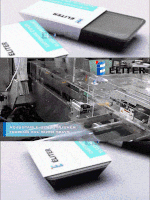Road to Reuse implements the SDDR system and allows you to purchase a container in Barcelona and return it in Madrid
2023-01-31
In the current context, sustainability is in the focus of business strategies, not only due to the increase in the price of raw materials or climate change, but also due to the entry into force of laws at the national and international level. In the Foodservice sector, measures to move towards a more sustainable packaging are of vital importance, due to the large number of materials and packaging that are used. In this sense, a new law has recently been approved in Spain that introduces the tax on non-reusable plastic containers, thus forcing a homogenization in the strategy towards a more sustainable system, and aligned with the waste hierarchy, that is, prioritizing reuse over recycling in the applications that this is possible.
In this context of the need to look for new formulas in restoration, the Road to Reuse (ROR) project was born, an initiative within the second AEIs call of 2022 within the framework of the Next Generation grants and the Recovery, Transformation and Resilience Plan of the Ministry of Industry, Trade and Tourism. The project is scheduled to be completed in April 2023.
The operation of Road to Reuse (ROR) consists in the implementation of the Deposit, Return and Return system (SDDR) in the main catering establishments in traveler environments through a client-API-microservices architecture (app). This first pilot phase began on December 15th and is being implemented in establishments such as that Areas, a leading company in Food&Beverage and Travel Retail, manages in the Sants station in Barcelona and Atocha in Madrid, and the Dots establishment also located in the Madrid station.
In these three establishments, which have an annual traffic of approximately 2 million customers and a potential of 5.7 million, Areas will put on sale 30% of the current salads with returnable packaging, being one of the best-selling products in this category. Thus, it is planned to reduce salad packaging by 30%, equivalent to more than 44,000 salad units/year, and save up to 1,000 kg of plastic in a year.
Thus, the main objective of the project is to promote the reuse of food packaging in the catering sector. Among the main measures are planned:
- Reduce the volume of single-use materials in general and plastic waste by 30% (salad containers).
- Especially reduce the consumption of plastics: 10% reduction of CO2.
- Promote reuse.
- Generate social and business sensitivity of the entire value chain.
- The project proposes to apply the SDDR system, one of the most important and relevant solutions considered and that allows to constantly work with the same containers that are cleaned and enabled for subsequent use as many times as necessary.
In order to create a closed system of reuse and cleaning of containers, it is necessary that technology accompanies this process. Through an app that uses a client-API-microservices architecture for data processing, it will be possible to ensure the traceability of all the containers to achieve a control of their location, condition and maintenance.




